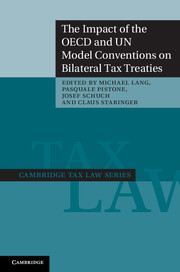Book contents
- Frontmatter
- Contents
- Contributors
- Preface
- Table of cases
- Table of statutes
- General report
- 1 Argentina
- 2 Australia
- 3 Austria
- 4 Belgium
- 5 Brazil
- 6 Canada
- 7 Chile
- 8 China
- 9 Colombia
- 10 Croatia
- 11 The Czech Republic
- 12 Estonia
- 13 Finland
- 14 France
- 15 Germany
- 16 Hong Kong
- 17 Hungary
- 18 India
- 19 Italy
- 20 Lebanon
- 21 Liechtenstein
- 22 The Netherlands
- 23 New Zealand
- 24 Norway
- 25 Peru
- 26 Poland
- 27 Portugal
- 28 Romania
- 29 The Russian Federation
- 30 Serbia
- 31 Slovakia
- 32 Slovenia
- 33 Spain
- 34 Sweden
- 35 Uganda
- 36 The UK
- 37 The USA
- Index
- References
11 - The Czech Republic
Published online by Cambridge University Press: 05 November 2014
- Frontmatter
- Contents
- Contributors
- Preface
- Table of cases
- Table of statutes
- General report
- 1 Argentina
- 2 Australia
- 3 Austria
- 4 Belgium
- 5 Brazil
- 6 Canada
- 7 Chile
- 8 China
- 9 Colombia
- 10 Croatia
- 11 The Czech Republic
- 12 Estonia
- 13 Finland
- 14 France
- 15 Germany
- 16 Hong Kong
- 17 Hungary
- 18 India
- 19 Italy
- 20 Lebanon
- 21 Liechtenstein
- 22 The Netherlands
- 23 New Zealand
- 24 Norway
- 25 Peru
- 26 Poland
- 27 Portugal
- 28 Romania
- 29 The Russian Federation
- 30 Serbia
- 31 Slovakia
- 32 Slovenia
- 33 Spain
- 34 Sweden
- 35 Uganda
- 36 The UK
- 37 The USA
- Index
- References
Summary
The relevance of the OECD and UN Model Conventions and their Commentaries for the interpretation of Czech tax treaties
The Commentaries of the OECD Model Tax Convention on Income and on Capital (OECD Model) were translated and published in the Czech language for the first time in 2009, together with the text of the Convention itself, as a joint project of Wolters Kluwer and the Czech and Slovak Chamber of Tax Consultants. The aim of the project was to make the Commentaries available to those users who do not have an adequate level of English. Although the Commentaries are not considered as a direct source of law and the Ministry of Finance has not yet officially commented on the role of the translation, the Czech and Slovak Chamber of Tax Consultants hopes to promote knowledge of the Commentaries and their practical application not only to tax consultants but also to the courts and the tax administration. The Commentaries are based on Article 5(b) of the OECD Model, decreed by the Ministry of Foreign Affairs by Decree No. 266/1998 Coll., based on which the OECD can provide recommendations to its Member countries.
The importance of the Commentaries in the Czech Republic is perceived mainly with regard to the experience of the states with the application of the arrangements. Commentaries are neither considered as a direct source of law nor as a binding legal regulation within the meaning of the Vienna Convention on the Law of Treaties (Vienna Convention). Instead, they are perceived as an interpretative tool in accordance with Article 32 of the Vienna Convention. The Czech Republic therefore does not have any international obligation to follow the OECD Model Commentaries.
- Type
- Chapter
- Information
- Publisher: Cambridge University PressPrint publication year: 2012
References
- 1
- Cited by

